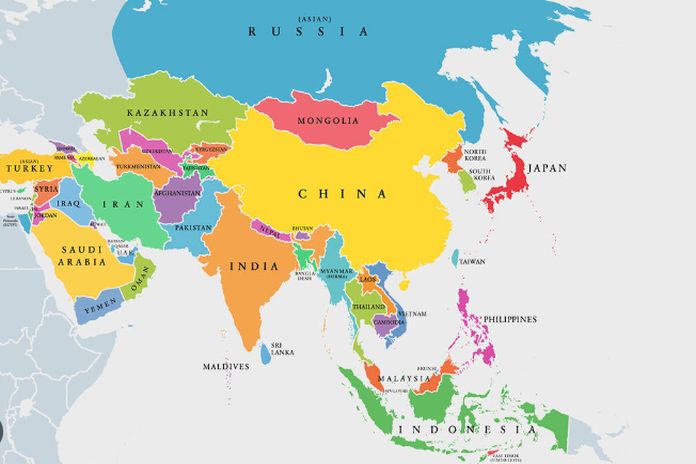By Kelly Grieco and Jennifer Kavanagh
In Washington, a consensus is emerging that the time has come to choose security over economics – to ‘de-risk’ the economic relationship with China despite potentially high costs. Washington is pushing its allies and partners to make the same choice, putting security ahead of economic interests.
Under president Joe Biden the United States pressed Japan and South Korea to impose export restrictions on the sale of advanced semiconductors to China, urged some partners to turn down urgently needed infrastructure investment from China and encouraged allies to reroute their trade networks through ‘friendly’ countries.
But over two dozen interviews conducted in 2023 with former government officials and security experts across Asia suggested that the region sees its security and economic interests as inseparable. It judges the United States’ security-over-economics approach to be destabilising to the delicate equilibrium between the two domains. This perspective leaves Washington out of sync with the countries it needs to balance Chinese power.
To avoid alienating these countries, the United States should take steps to reduce the acute tradeoffs they face. It should adopt a more multifaceted approach, bolstering regional defenses but avoiding more provocative military and political activities and expanding US participation in the region’s economic networks and institutions.
The interviews made clear that for countries in Asia choosing security over economics – or economics over security – is unviable.
For Japan and South Korea, the difficulty of separating economics from security is most pronounced in the advanced technology sector. The technologies these countries sell to China have clear defence applications, but are also vital economic exports. This creates a dilemma for policymakers – a challenge embodied in South Korea’s request for and receipt of permanent exemption from some US semiconductor export controls.
Japan’s security concerns are more significant, and its political leaders have been more willing to adopt a securitised approach to trade. But even here, a former senior Japanese defence official said Tokyo and Beijing’s ‘high degree of economic interdependence’ required constructive political and military ties.
In Southeast Asia, the overlap between the security and economic domains seems even more extensive. A Singaporean security scholar noted that the country had ‘limited flexibility’ to confront China because it could not afford Beijing’s economic coercion. An Indonesian security expert similarly said that Jakarta recognises that it must ‘learn to live with’ China and manage security issues between the two countries, because there is ‘nothing like the intensity of [the economic] relationship.’
Given the strategic landscape, Washington ought to take steps to reduce the tension between the economic and security domains, giving regional allies and partners room to manoeuvre.
To start, the United States should recalibrate its activities in the Indo-Pacific’s security domain – though not reduce its level of engagement – eliminating symbolic but incendiary political visits to Taiwan and limiting the number of US military personnel sent to train Taiwanese forces. Though Washington uses such activities to bolster deterrence, countries in the region report that such actions place them in a strategic bind. Instead, the United States should tailor its activities to meet regional security demand, prioritising investments to jumpstart the defence industrial bases of allies and partners.
The United States also urgently needs to integrate itself more fully into the region’s economic networks. The United States cannot fall back on the disappointing Indo-Pacific Economic Framework if it hopes to offer a counterweight to China. Joining the region’s free trade networks, including the Comprehensive and Progressive Agreement for Trans-Pacific Partnership, is out of reach due to US domestic politics, but Washington could still help countries reduce their economic reliance on China by changing the way that it invests.
Washington should double down its participation in Asia’s development banks. Greater cooperation with the Asian Development Bank is one option. The United States might also reverse course and join the Asian Infrastructure Investment Bank to open new pathways for US–China engagement as well.
Washington should also increase funding for the activities of the US Export-Import Bank and similar initiatives like Biden’s Partnership for Global Infrastructure Investment.
Past efforts have been limited by their slow timelines, inability to attract needed private funds and mismatch with local needs. New strategies ought to reduce the time lag before the arrival of funding and identify ways to deepen US involvement over the life cycle of the project, perhaps through the use of joint ventures.
Above all, the interviewees imagined a future that prioritises regional stability. US policymakers can do more to help bridge the region’s security-economic divide, but this will require a reorientaiton of US policy. Washington criticises Xi Jinping for emphasising national security over economic development, but has repeatedly done the same thing – not only by letting military activities lead its regional strategy but also through export controls, investment screeing and trade protections.
This hypocrisy is not lost on the reigon. Regional countries have security concerns about China, but they want inclusive – rather than exclusive – regional economic and security relationships. Washington should embrace the region’s understanding of economic and security interests as interdependent and adopt a more balanced and multidimensional approach that leans equally on security and economic tools.
– Kelly Grieco is Senior Fellow in the Reimagining US Grand Strategy Program at the Stimson Center.
– Jennifer Kavangh is Senior Fellow in the American Statecraft Program at the Carnegie Endowment for International Peace.





